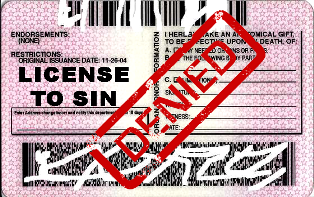There are several views on predestination, election and salvation. May I share with you some (not all) of these views. As we discuss these views, let us not forget to treat with due respect our fellow Christians who hold on to a differing view from what we believe in.
Calvinism

Those who embrace Calvinism believe that salvation is the eternal choice of God for some selected people only—not for all. Only for some. Salvation is limited to a few. Some go to hell and some go to heaven according to God’s choice from the very start. An individual has no freedom of choice. It has been decided upon a long time ago by God from the very creation of the world who are going to be damned and who are going to be saved. They call this as “double predestination.” Some have been predestined to be saved and some have been predestined to be damned. God’s sovereignty is the basis and foundation of this theology. Essentially, this is Calvinism as taught by Theodore Beza who became the leader after John Calvin died.
In this view, God has two wills—to save the righteous and to damn the wicked.
Arminianism

Those who embrace Arminianism believe that salvation is for everyone. They believe that God loves the whole world and salvation is for all. An individual has freedom of choice because God has given each person what is called as “prevenient grace”—the grace that empowers individuals to have a neutral will to choose good or evil—because reprobate man cannot choose good without “prevenient grace.” Those who choose to obey will go to heaven. Those who are disobedient will go to hell.
Based on God’s foreknowledge, he can foresee who will accept and who will reject his free gift of salvation and therefore God can decide in advance who goes to heaven and who goes to hell. In this view, God’s will is not thwarted and humans are given freedom of choice. Arminianism came about as a reaction to Theodore Beza’s version of Calvinism. Arminius who was a Calvinist, reacted to his fellow Calvinist Theodore Beza’s view after the death of John Calvin. This is essentially what Arminianism is all about.
Just like in Calvinism, in this view God has two wills—to save the righteous and to damn the wicked.
Incarnational Trinitarian Theology
In this theology, Christ is the center of it all. Christ is the Elected One to be a blessing for all. The purpose of election is to be a blessing to others—to include all—not rejection. In both Calvinism and Arminianism, election and predestination has to do with some people being chosen and some people being rejected—some will go to heaven and some will go to hell.
This is not so in Incarnational, Trinitarian Theology. Through Jesus Christ who is the Elected One, God chose and predestined ALL of humanity (not just a few) to be adopted as his sons through Christ in accordance with his will (Eph. 1:4-5 ). This is an objective truth and reality that has already been decided upon by God from the very beginning. Christ’s atoning work has already been done. It is finished.
Individually and subjectively, each person is encouraged to respond and accept this free gift of salvation so that he can personally experience and enjoy the benefits of salvation which is already true in Jesus Christ.
Salvation: God’s Free Gift
In view of God’s free gift of salvation each person is encouraged to respond positively (Acts 2:38 , Rom. 10:13 ). There is freedom of choice. God’s sovereignty is not threatened by giving humans the freedom to accept or reject his offer of salvation. Love cannot be forced nor coerced. God will not force anyone against his will. It has to be voluntary or it is not love at all.
Repentance and faith are urged upon everyone as the rightful response signifying acceptance of God’s free gift of salvation. In response to God’s great love, his followers love him in return by following him and obeying all of his commands. Obedience is motivated by love not fear of punishment.
In this view, God has only one will—to save both the righteous and the wicked. As Thomas Torrance puts it, “In God there is only grace. In God there is only ‘yes’ both for the believing and the unbelieving.”
Related Topic:
Photo credit: Google





